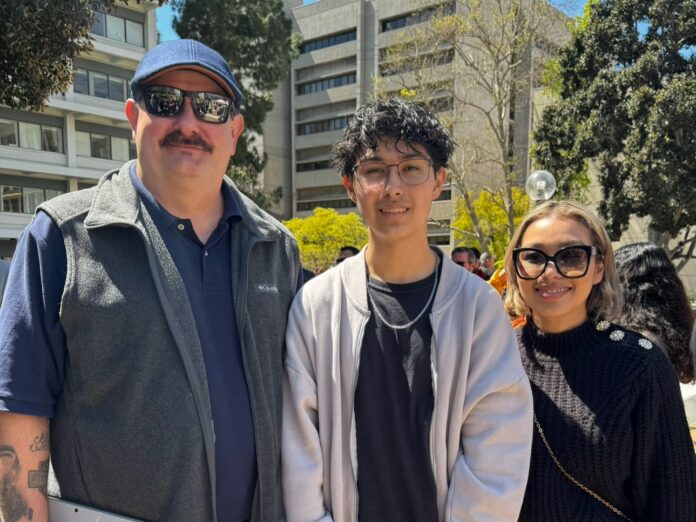by Suzanne Potter
The California State Assembly is considering a bill to require schools to have a cardiac arrest response plan. Assembly Bill 2887 would make sure schools update their safety plans and encourage them CPR training and placement of an automatic external defibrillator or AED onsite.
Dr. Stephen Sanko, a professor of clinical emergency medicine at USC, and a founding member of the Cardiac Arrest Survivor Alliance, is a volunteer expert for the American Heart Association. He said having a plan in place is critical.
“The American Heart Association is promoting that schools have a cardiac arrest response plan. A written protocol for what to do in order to decrease the likelihood that if somebody collapses, that they die,” he said.
Two years ago, 15-year-old Cash Hennessy collapsed on the football field due to a previously unknown heart defect. Two off-duty medics in the stands gave him CPR. The school brought out its AED – but it was useless, because the batteries were dead.
Hennessy said the experience was traumatic.
“I feel blessed that I had people there for me, that could give me C-P-R. But I think about if those people weren’t there and that was another kid, who knows what would have happened? Because there wouldn’t have been an AED to save them,” he explained.
An AED walks people through the steps to deliver a life-saving shock to a person’s heart until an ambulance arrives. Studies show that 70 percent of kids who suffer sudden cardiac arrest at school recover if an AED is deployed correctly – whereas the survival rate for kids and adults not in the hospital is less than 12 percent.
Criminal justice package moves ahead in CA state Legislature
A package to improve public safety is moving ahead in the California state Legislature – with a floor vote in the State Assembly on the first bill expected this week.
Assembly Bill 2215 puts into statute that police officers have the discretion to send people arrested for low-level offenses directly to supportive services.
Anthony DiMartino – government affairs director with the nonprofit Californians for Safety and Justice – said sometimes public safety is best served when people avoid arrest and instead get therapy, addiction support or help getting a job.
“We’re also hoping to raise awareness that this is something officers can do, and then also encourage partnerships more with officers to look at what’s in their community,” said DiMartino, “as alternatives to jail booking.”
A second bill would increase transparency and accountability on money sent to the counties as part of the Public Safety Realignment.
A third bill would require police officers, prosecuting attorneys and investigators to identify themselves any time they’re interviewing a family member of someone killed or severely injured by police.
DiMartino said they also support AB 2499, which would ensure that survivors of violent crime and their family members can take unpaid time off work to address safety concerns and heal.
“We’re hoping to broaden the scope a bit,” said DiMartino, “and make it more clear that family members of victims are able to also tap into unpaid leave to support their family member that has been a victim.”
A fifth bill would make it easier for justice-involved people and crime victims to speak freely during restorative justice programs – by making the communications inadmissible in other legal proceedings.



